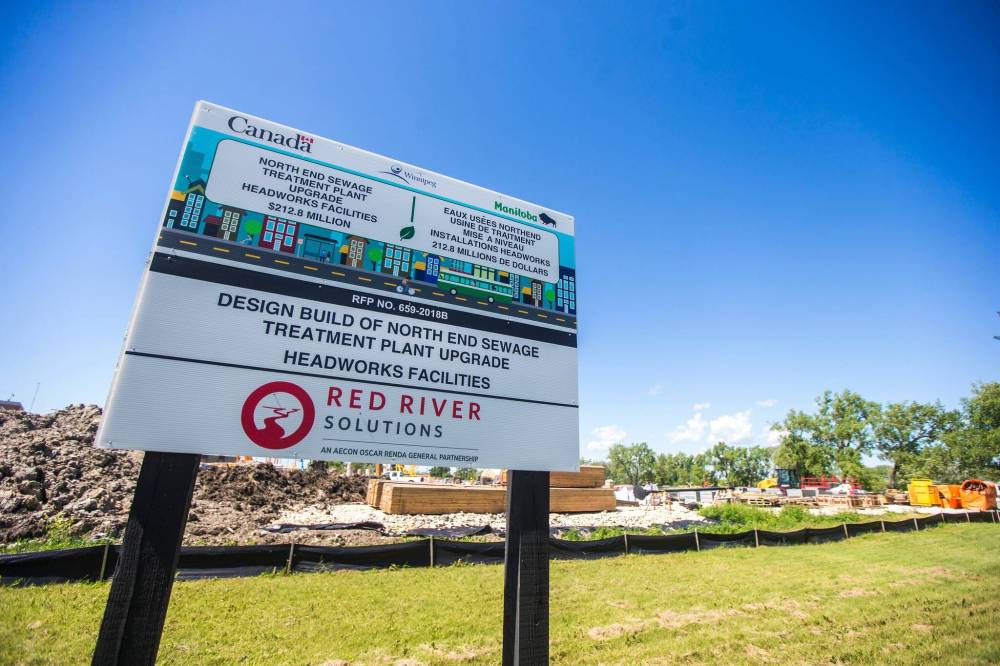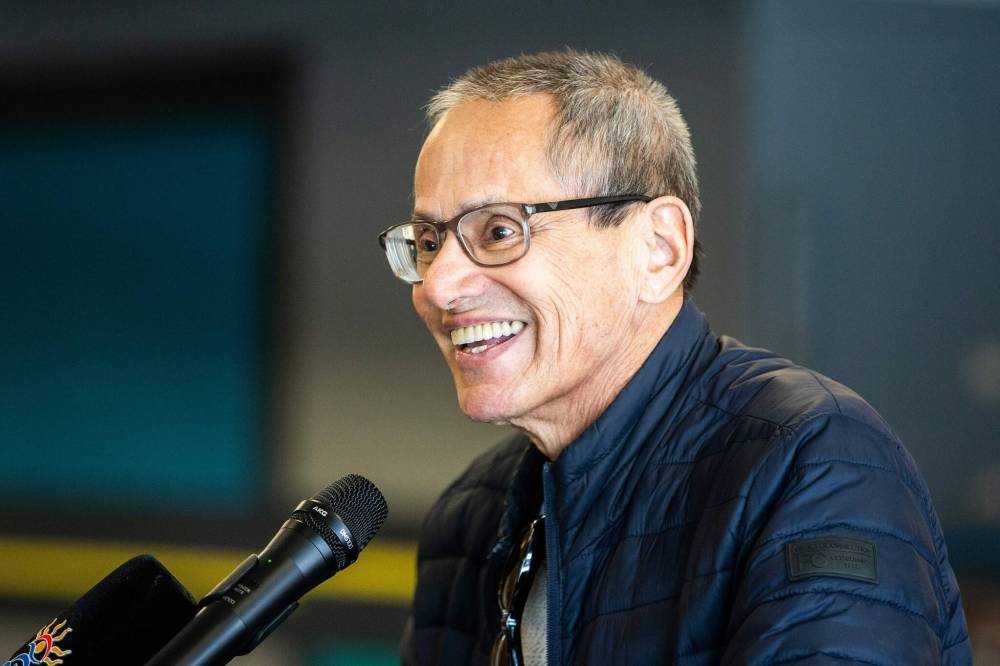Indigenous liaison sought for big city project
Advertisement
Read this article for free:
or
Already have an account? Log in here »
To continue reading, please subscribe:
Monthly Digital Subscription
$0 for the first 4 weeks*
- Enjoy unlimited reading on winnipegfreepress.com
- Read the E-Edition, our digital replica newspaper
- Access News Break, our award-winning app
- Play interactive puzzles
*No charge for 4 weeks then price increases to the regular rate of $19.00 plus GST every four weeks. Offer available to new and qualified returning subscribers only. Cancel any time.
Monthly Digital Subscription
$4.75/week*
- Enjoy unlimited reading on winnipegfreepress.com
- Read the E-Edition, our digital replica newspaper
- Access News Break, our award-winning app
- Play interactive puzzles
*Billed as $19 plus GST every four weeks. Cancel any time.
To continue reading, please subscribe:
Add Free Press access to your Brandon Sun subscription for only an additional
$1 for the first 4 weeks*
*Your next subscription payment will increase by $1.00 and you will be charged $16.99 plus GST for four weeks. After four weeks, your payment will increase to $23.99 plus GST every four weeks.
Read unlimited articles for free today:
or
Already have an account? Log in here »
Hey there, time traveller!
This article was published 11/07/2023 (872 days ago), so information in it may no longer be current.
The City of Winnipeg is seeking an Indigenous liaison to guide targeted consultations on the second phase of the upgrade to its north end sewage treatment plant.
The contractor would create a plan for consultations, primarily on the biosolids facilities portion of the three-phase mega project, since the facilities will be built on land with potential “archaeological impact.”
The liaison contract also reflects a city commitment to reconciliation through better consultation with Indigenous communities, said Damon Johnston, president of the Aboriginal Council of Winnipeg.

MIKAELA MACKENZIE / WINNIPEG FREE PRESS FILES
The City of Winnipeg is seeking an Indigenous liaison to guide targeted consultations on the second phase of the upgrade to its north end sewage treatment plant.
“One of (their pledges) is to engage with us on anything of real importance. Projects like the north end (sewage) treatment plant (are) critical infrastructure projects and they have the potential to affect everyone’s health. We’ve got to make sure our sewage is being (properly treated).”
Johnston said it’s important the municipal government consult with First Nations, Métis, Inuit and urban Indigenous people to ensure a spectrum of views are considered.
“This is one of the largest infrastructure projects the city has ever undertaken… It’s a major investment to improve the city’s capacity to process sewage… It’s important to all of us,” he said.
Phase 2 of the upgrade was originally expected to cost $552 million but the tab could now reach as high as $912 million, thanks mostly to inflation and efforts to reduce pollution faster.
If the full potential price hike is realized, the overall upgrade will cost about $2.2 billion.
Johnston said the environmental significance of the overall plant upgrade — which will increase treatment capacity and greatly reduce the amount of algae-promoting nutrients in the plant’s effluent — warrants extra attention.
The request for proposal says the consultations would aim to help stakeholders understand the project’s impact on land and water, while obtaining feedback to help protect the land’s heritage.
“Indigenous stakeholders will have the space and opportunity to share historical land usage knowledge, or other types of lived experience, with the city,” the document notes.
Coun. Brian Mayes, chairman of the water and waste committee, said he doesn’t think the targeted engagement will become standard for smaller sewage upgrades. He said it does makes sense to get as much public input as possible on the mega project and the land’s history.
“I think given the enormity of the project… on something with this big a scope, spreading over this many years… I think it is reconciliation to say, on the front end, let’s try to be proactive… I do think it’s prudent of the city to move forward like this.”

MIKAELA MACKENZIE / WINNIPEG FREE PRESS FILES
The liaison contract also reflects a city commitment to reconciliation through better consultation with Indigenous communities, said Damon Johnston, president of the Aboriginal Council of Winnipeg.
In an emailed statement, a water and waste spokeswoman said the province has flagged there may special significance to the city-owned land where the biosolids facilities will be constructed.
“The land… has been identified by the province’s heritage resource branch as a property that may have an archaeological impact, based on historical usage. Providing information on the upcoming projects to Indigenous stakeholders, including what land will be impacted, as well as benefits of this project to our waterways, is an important part of the city’s reconciliation work,” wrote Lisa Marquardson.
The city previously hired Peguis Consultation & Special Projects Inc. to complete heritage resource impact assessments of the site, Marquardson noted.
The liaison would be expected to: reach out to stakeholders; create presentations; hold one gathering in Winnipeg and five in other communities; and report on the feedback. The contract award would require approval from council’s water and waste committee.
The RFP notes the city expects to spend $150,000 on the contract and hopes to award it by Sept. 30.
joyanne.pursaga@freepress.mb.ca
Twitter: @joyanne_pursaga

Joyanne is city hall reporter for the Winnipeg Free Press. A reporter since 2004, she began covering politics exclusively in 2012, writing on city hall and the Manitoba Legislature for the Winnipeg Sun before joining the Free Press in early 2020. Read more about Joyanne.
Every piece of reporting Joyanne produces is reviewed by an editing team before it is posted online or published in print — part of the Free Press‘s tradition, since 1872, of producing reliable independent journalism. Read more about Free Press’s history and mandate, and learn how our newsroom operates.
Our newsroom depends on a growing audience of readers to power our journalism. If you are not a paid reader, please consider becoming a subscriber.
Our newsroom depends on its audience of readers to power our journalism. Thank you for your support.


